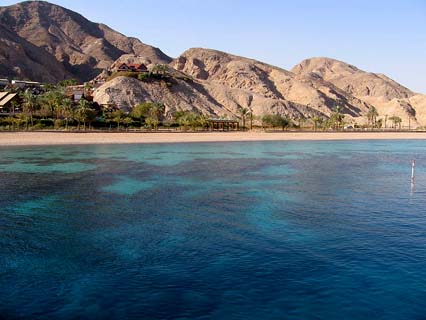By Giorgia Manno.

Dead Sea, Jordan. It is still and immovable, despite the chaos that dominates the region. A single glance embraces the coast of Israel and its “natural” continuation into the Palestinian territories. In an isolated complex of four-star hotels, the World Economic Forum on the Middle East and North Africa officially opens.
“Those who decide” are hidden among the thousands of participants. Yet they all look alike, by the mere fact of being there. At this gathering, it is “normal” to shake hands with a prime minister, to exchange your business card with the head of the Arab League, to joke with the CEO of a large company. Anyone can come forward and approach policy-makers, thus humanizing their role with a simple conversation, which gives those who are “important” the weird privilege of feeling just “normal.”
At the Dead Sea, all glances become lively and careful. An apparent calm hides the anger, disappointment, frustration of the peoples that are represented there. Beginning with an informal conversation, it is possible to end up talking about sensitive topics, analyzing and examining the issues discussed during the WEF panels. Even the breaks are dedicated to getting to know each other, trying to guess the nationality and work role of the people that are sipping coffee or tasting a baklawa. Palestinian? Israeli? Maybe Egyptian? Only few are from the West.
Meanwhile, sessions on entrepreneurship or on the Middle Eastern dilemmas are taking place. At the World Economic Forum even those panels are different from the seminars that one usually attends. The fact that the U.S. Secretary of State John Kerry is coming, for the fourth time, to the region, makes participants hope that it is not just about words. Hearing the cry of “PEACE”, launched by a well-known Palestinian businessman in the vast main hall of the Convention Center touches the soul of the audience. Decisions, however, are unlikely to be made. It is a forum, a platform where ideas are defined, projects are analyzed, participants express their opinions and exchange views. Peace is not created, but hands are shaken. Even between Peres and Abbas.
Looking out from the hotel’s terrace, thoughts easily go to the condition of this cursed frontier land. A session on Syria just ended. No solutions are reached despite countless debates, while tensions continue to spread throughout the region. In the meantime, thousands of miles away, other leaders are deciding to re-launch a political solution, following the diplomatic initiative proposed by Russia and the United States.
A peace conference on Syria has just been announced for June. Perhaps John McCain, the U.S. Senator, had that in mind when he quietly declared during a session of the Forum that “after two years, we know the Syrian opposition well, and we are well aware of whom we can rely on.” Maybe he was thinking of the not yet officially identified representatives who, in his view, will be invited to the negotiating table? And perhaps, when he placidly asserted “we will arm the rebels”, without regard to the concerns expressed by the former Head of the Arab League, Amr Moussa, he knew that the European Union would soon end the arms embargo, thereby accepting the Franco-British pressure to assist the rebels?
Everyone knows that the Syrian conflict has taken on an international dimension with the involvement of regional and global powers. Furthermore, the growing flow of displaced persons (now totaling more than 10 million) is straining the stability of neighboring countries. In Jordan, for instance, refugees now account for 10% of the population, and they are still welcomed despite the national economic problems. The surrounding monarchies fear that their own Shia minorities may soon emulate their Alawite cousins, and rise up.
Nevertheless, the MENA region wants to fully become the master of its own destiny. Therefore Iran should – and probably will – be included in the negotiations on Syria, despite Washington’s disagreement. The nuclear negotiations have become secondary, just like the link between Iranian Shias and Syrian Alawites. Furthermore, some still show their skepticism on the ongoing contacts between the U.S. and Russia. Others do not hide their appreciation for Syrian President Bashar al-Assad. Many comment about their disregard for the U.S. intervention in Iraq and Afghanistan.
The sessions go beyond Syria, of course. Many panels are focused on the potential of the region and on the sectors that may receive investments. At the forum, entrepreneurship goes hand in hand with the focus on local dilemmas.
In this complex setting, the founder of the WEF, Klaus Schwab, decided to contribute to the building of “Peace”, putting again into practice his motto “improving the state of the world”. For this purpose, he officially launched the “Breaking the Impasse” initiative, which envisages meetings between Israeli and Palestinian entrepreneurs on a weekly basis. Schwab tried to identify a new keystone for the Israeli-Palestinian conflict, promoting the involvement of actors who are close to the masses and the youth, but remain influential in policy-making circles. It is a path that has not been undertaken, yet.
Concerns, however, are raised by many participants about the absence of Mr. Netanyahu, about the economic difficulties in Palestine and, finally, about the additional obstacles that have been blocking the peace process since 1967. Nevertheless, hope and skepticism melt into several long applauses. Then came another important news: Kerry unveiled a $ 4 billion plan to double Palestine’s GDP in only three years. The World Economic Forum thus ended on a positive note. Another brick has been placed in the wall of a regional peace, today more essential than ever.


